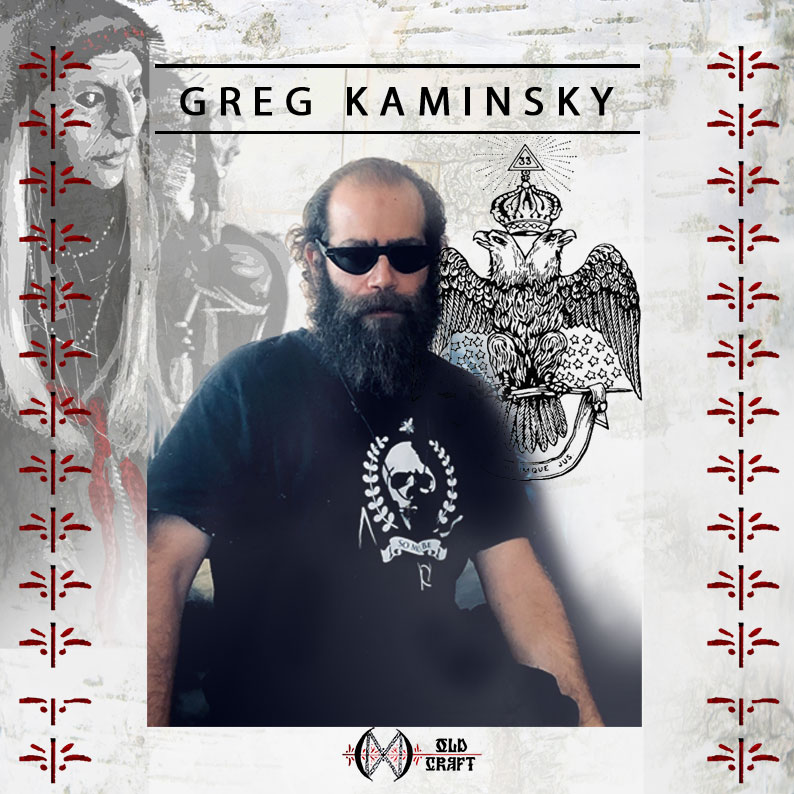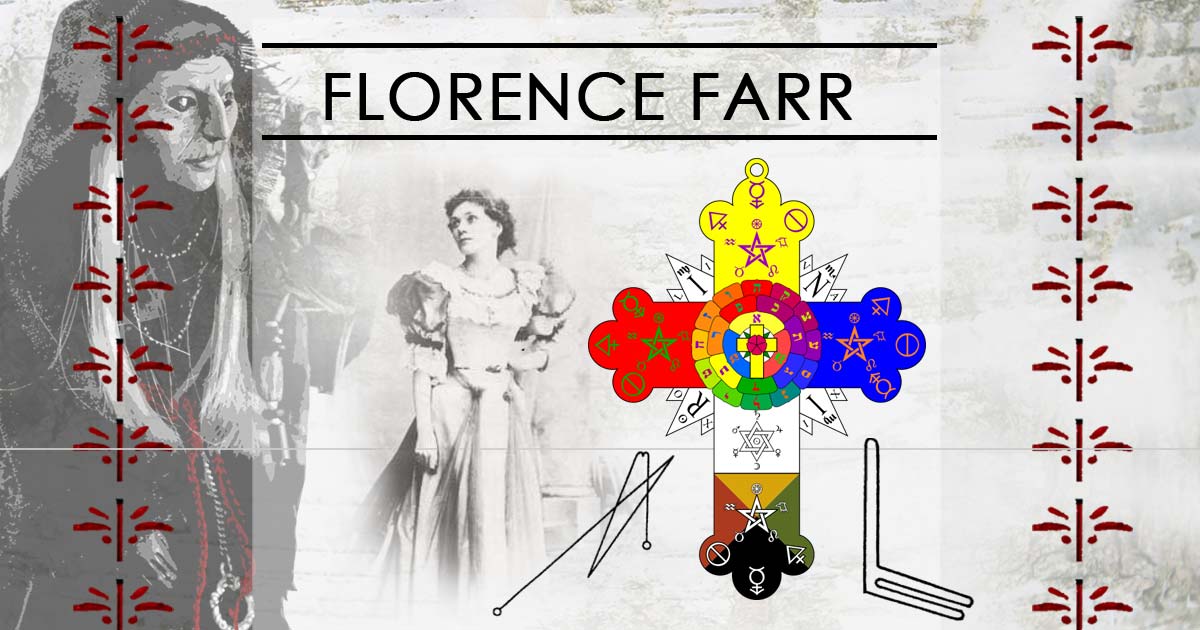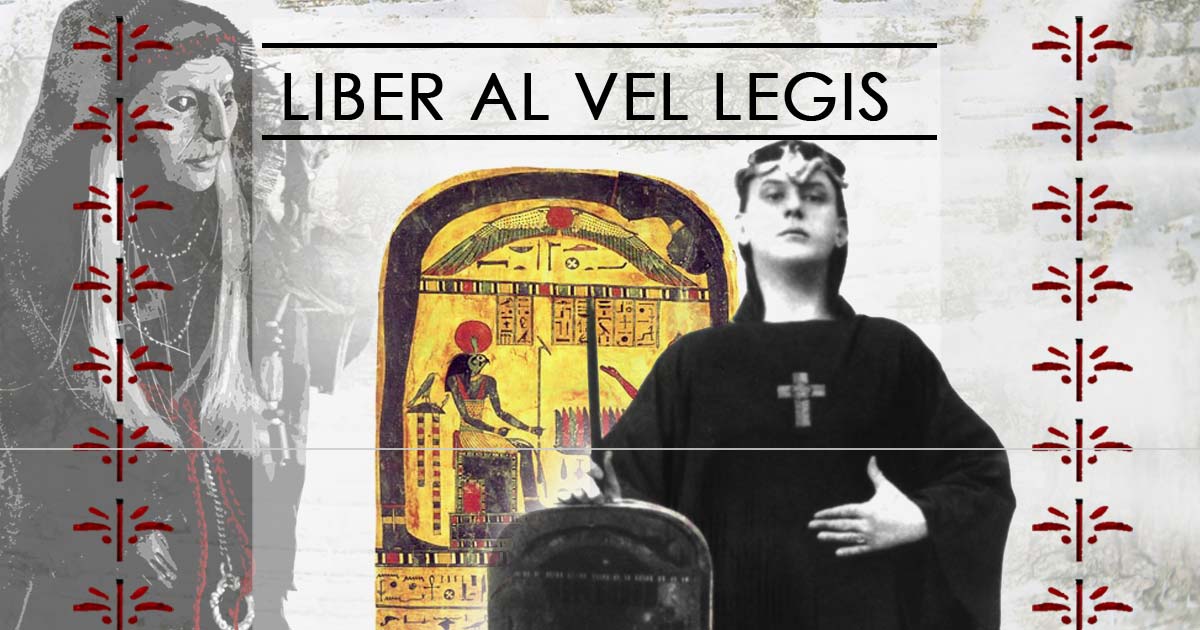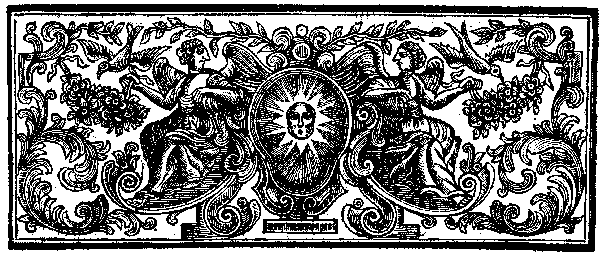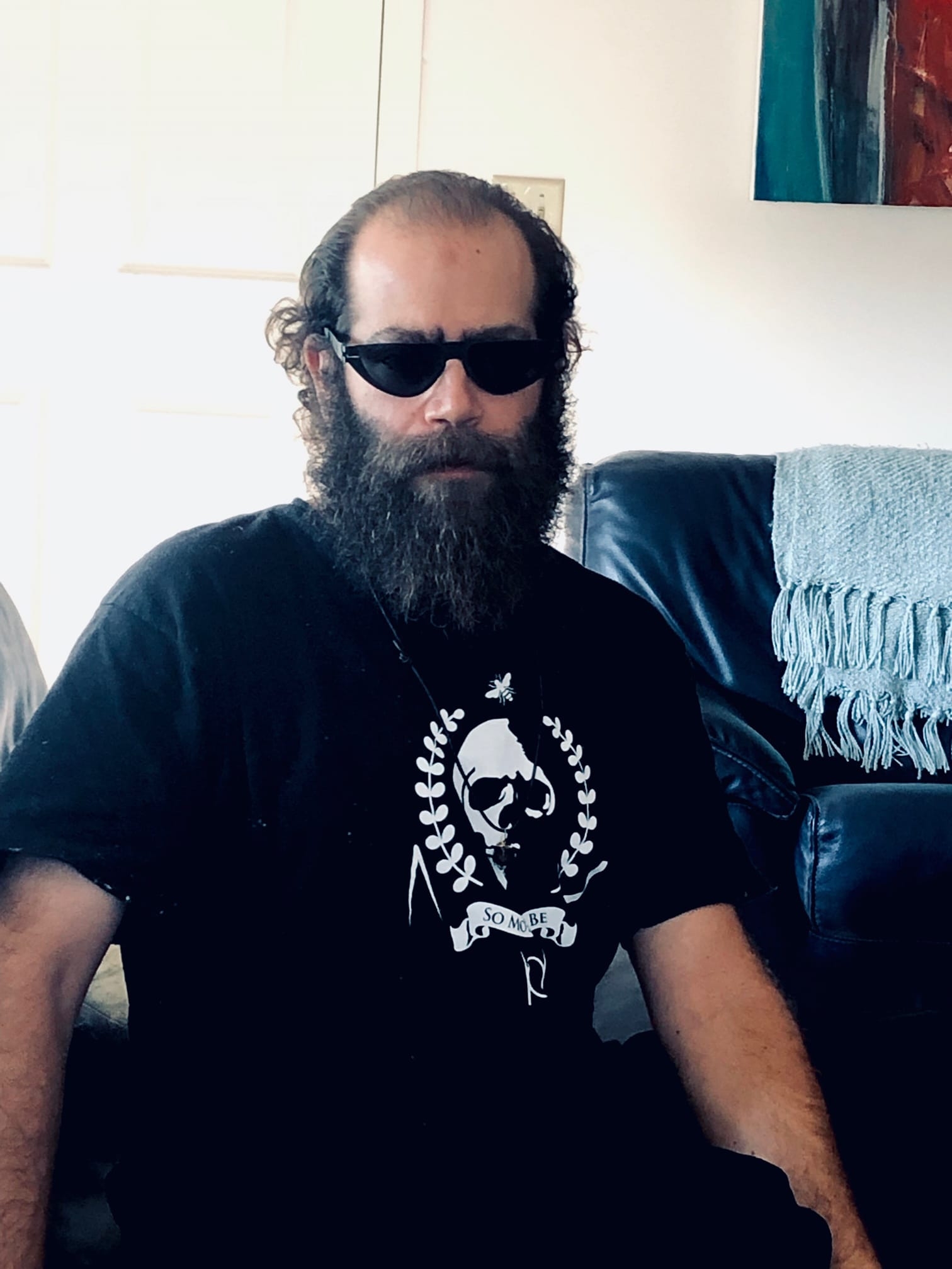
Greg Kaminsky, founder and host of the podcast »Occult of Personality« lives in Michigan with his wife and children. He explores Western (and Eastern) Esoteric traditions not only over his podcast but also as an academic who graduated at Harvard, as well as a practitioner himself. Recently, Greg started to share some of his own experiences and insights after over 15 years of practice. Reason enough to invite him to an interview on theoldcraft.com
Greg Kaminsky started »Occult of Personality« the – maybe first – but for sure the most prominent and constant podcast around the Western Esoteric Tradition in 2005. Since then, he produced more than 200 high quality and well-prepared shows with a large variety of mostly well known, but surely worthwhile occult authors or, as the title of the show suggests, personalities. Topics covered range from freemasonry, chaos magic, Enochian magick, Thelema, Voudon, witchcraft and heathenism, to gnosis or alchemy. The subscription-only membership section »chamberofreflection.com« offers older shows and many additional materials, as for example, Greg’s Harvard university thesis on medieval Cabalist Pico della Mirandola and his system of celestial intelligences. Indeed, Greg has been known to approach the occult not only as host of his podcast, but also as a recognized academic.
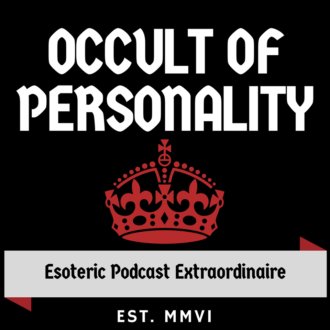
The podcast »Occult of Personality« started in about 2005 and produced since then over 200 shows with a large variety of occult celebrities and practitioners. Many thousands of listeners tune in every month over a variety of podcast outlets or social media channels, but also Greg’s own membership site »ChamberOfReflection.com«.
A little bit less known may be Greg as a spiritual practitioner.
He is personally heavily invested in the occult after a Kundalini experience in 2005, which changed his life in many regards for the better. He is a Scottish rite freemason, practiced magic, Thelema, tarot and divination, cabala with David Chaim Smith, inner alchemy, but also tried Reiki. Yoga and other eastern teachings such as Dzogchen have always been on his radar, and right now Vajrayana Buddhism is the main component of his daily practice. Greg lives with his wife and children in North America, where he moved not so long ago to the countryside.
Even though Greg has been practicing for a long time, it is only since recently that he also started opening up and to share some of his experience and knowledge. A first step in this regard is a set of 15 tips »to lit up« your spiritual practice. I wanted to have Greg for a long time as a guest on theoldcraft.com and thus, take this opportunity to talk with him more about himself, his path and his latest recording.
AH: Before we dive into the details of your latest show, or recording in which you start sharing some of your experience, let’s add a little bit more context. When did you get started with your own occult or spiritual practice and what were the whereabouts?
Greg Kaminsky: I became interested in esoteric spirituality a bit as a teenager, but really seriously when I was in my early 30’s and working for a Fortune 50 company in software development. I began to feel an overwhelming sense of meaninglessness about my job and my life more generally. That’s when I intuited that the spiritual realm was a good place to go looking for solutions.
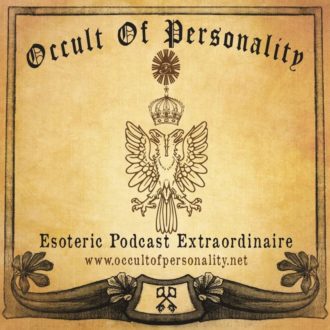
“Occult of Personality” – The first logo of the occult / esoteric podcast from approximately 2005 or 2006 showed nothing but the double headed eagle from »Morals and Dogma of the Ancient and Accepted Scottish Rite of Freemasonry«, a book on masonry according to the Scottish Rite. The version above is from 2010 or 2011 and has already more details added to it.
Fortunately, I didn’t have to look too long before I found some clues. I had a kundalini experience early on during this time that propelled me into the awareness that what was happening to me was mysterious and I had to have some faith that I was moving in a positive direction. It seemed that my path involved the awakening to embodiment and through that to understanding of awareness-appearance as a great mystery that involves our entire beingness and existentiality. From there I began investigating a number of paths including plant medicines, ceremonial magick, alchemy, Tarot symbolism, secret societies and esoteric orders, mythology, psychology, philosophy, art, music, and meditation. Eventually, my curiosity about all these subjects impelled me to begin Occult of Personality podcast in 2005 or 2006 as a way to talk to experts and create an archive of my investigations. It has served me, and hopefully others, well over the years and has been a crucial part of my path. I am very grateful to all the guests who talked with me and shared their knowledge and experience as well as all the listeners whose support kept me going during times when I felt uncertain. It has certainly been an adventure!
AH: From your current point of view – what is the ultimate goal or the great why of spiritual practice?
Greg: Humans have the capacity to do what other creatures seemingly cannot–know themselves as both finite (human) and infinite (divine) simultaneously. This means that we exist within a sphere of divine expression as a part of it. Realizing this and living it is our true purpose and brings about joy because we can become love and experience ultimate meaningfulness. Humans are the only way that the divine can know itself and this is the reason and purpose for which we exist. It is both our birthright and our obligation. Not living up to it is to waste the potential, but we will all get there eventually, if not in this lifetime, then in a future one… I think Viktor Frankl expressed the crucial point – we must transcend ourselves in order to realize our full potential. The spiritual path is the way to self-transcendence.
By declaring that man is responsible and must actualize the potential meaning of his life, I wish to stress that the true meaning of life is to be discovered in the world rather than within man or his own psyche, as though it were a closed system. I have termed this constitutive characteristic “the self-transcendence of human existence.” It denotes the fact that being human always points, and is directed, to something or someone, other than oneself – be it a meaning to fulfill or another human being to encounter. The more one forgets himself – by giving himself to a cause to serve or another person to love – the more human he is and the more he actualizes himself. What is called self-actualization is not an attainable aim at all, for the simple reason that the more one would strive for it, the more he would miss it. In other words, self-actualization is possible only as a side-effect of self-transcendence. – Man’s Search for Meaning
AH: So, a modern interpretation of a thought formulated in Pico della Mirandola’s »Oratio« – Man is not a fixed being and can live up to the divine. But likewise, he could also degenerate, to a less liberated/realized form of life…?
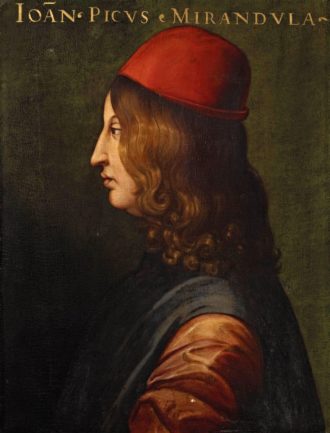
Giovanni Pico della Mirandola (1463-1494) is often considered in humanities the author of the key »manifesto of the Renaissance«. Long overlooked by mainstream academics however was, that Pico laid in this “Oration on the Dignity of Man” and his 900 theses the foundations for the Christian Cabala of the next centuries. Pico, an exceptional polymath and rare syncretist, tried to reconcile classic ancient wisdom from heathen Rome and Greece, hermetic and gnostic – in short: Neoplatonic – thought as well as Jewish Cabala and Christianity. The resulting 900 theses were intended to be discussed openly in Rome, but earned the aged 23 Pico only to become the author of the first printed book to be universally banned by the church. In his defense, Pico wrote the “Oration on the Dignity of Man” which”s introduction is probably one of the most cited Rennaisance texts to date. Greg Kamsniky is one of the few scholars who, in his Harvard Dissertation, also examined the esoteric system and thought presented by Pico in the very same texts.
Greg: Yes! Not only Pico, but all of the great sages have told us that where our thoughts are is where we are, and not only where we are, but what we are. This is how contemplation works. This is how the “I” is imputed to any thing at all. We just have lots and lots of practice imputing it to our physical body. But where our thoughts are is where we are, so if your thoughts are on the divine, then one has the capability of divine union. But if our thoughts, as they so often are, are filled with self-concern, comfort, and other non-virtuous things means that most of the time, we are like animals or plants more than human beings. I could write pages and pages on this topic, but rather than try to give you historical quotations from authoritative sources or convince you based on my own experience, you should try it yourself. Devote two hours to contemplation of the divine without any interruption and see what happens. Can you even concentrate for that long? Likely not without practice. Quickly you may find that unless you’ve trained yourself, you cannot keep your mind from going astray almost continuously. This helps to show us that to walk the spiritual path, we must first make the mind our servant and not let it go wherever it wants like a naughty puppy. Once we make our mind the servant, we can contemplate for hours and really derive great benefit from it. It is a struggle to elevate our thoughts, but only by mastering our minds can we even hope to become serious spiritual aspirants.
AH: Actually, one of your 15 pieces of advice has been: Consider the purpose and the expected results of your spiritual practice. But it is also strongly connected to another tip: Learn and understand the views of your path. This sounds very basic and maybe even a bit boring. But most starters are so obsessed with getting results or any kind of phenomena, that they try out everything, become masters of nothing and are doomed to remain starters forever. But for all others, who are ready to put in the work – could you explain a bit what these points mean to you, maybe you have even some examples on how they impacted you or somebody you know for the worse or the better?
Greg: If we live out a view of reality that does not match the facts, then we suffer. Typically, this can be summarized as, ‘I want things to be the way I want them instead of the way they are.’ So, it is important that one works towards realizing a view of reality that is accurate in order to understand how we create our own suffering–that is the first step in intentionally working to end that suffering. For me, understanding the view of the path is crucial because it tells you what realization you are working towards. If the view is incongruent with what you want to do and be, then one must figure out why or simply find another path. The methods of the path are ways to practice the view, so it is good if the view is articulated, recognized, and understood. Otherwise, it becomes necessary to investigate and determine what it is. Because at the beginning we don’t really even know ourselves, we can only know the view and the purpose. If the view and the purpose are ideas that we can devote ourselves to without any reservation, then that is a good beginning. If the view and purpose are not ideas that resonate with our beingess, then we know that spending time on that path is likely not to be productive or beneficial. For me, this is best observed in the path of Buddhist tantra. Known as the resultant path because the view is presented right up front, the methods are ways to practice the view, and the realization would be of that same view. So the path is coherent and holographic where all teachings, methods, symbols, deities support and reinforce the original expositions about the view and nature of reality. This is incredibly helpful because everything creates a vectoral momentum towards understanding reality as it is.
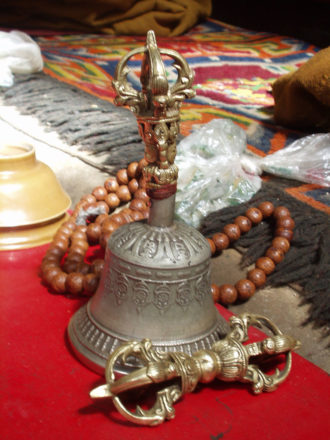
Vajrayana or Tantric Buddhism emerged originally in India as a part of Mahayana-Buddhism but is mainly common to Tibet and Mongolia. Also known as »Diamond« or »Thunderbolt Vehicle« it may also be described as esoteric Buddhism, with Tantra and Dzogchen as important practices. The picture shows the Vajra, the bell and a mala – the Buddhist prayer bead as typical ritual items. Source: CC Wikimedia.
AH: If we then take Buddhist Tantra as an example: What is it, and what is the final result that awaits the practitioner after some proficiency has been achieved (just not to necessarily presume there is an end to it). How does one know he or she is »getting there«?
Greg: So the view of Buddhist tantra is that all there is is divinity and phenomenal appearance is divinity’s expression. We are existing within a sphere of divine wholeness and when we see, recognize, and embody that view, we participate in that wholeness. This view also posits that all sense perception, consciousness, and the way we interpret forms is all interdependently originated meaning that our conception of a self is illusory and ultimately awareness is not temporal or localizable and is synonymous with phenomenal appearance (Awareness-appearance are not two). So it is an entirely non-dual view and, if one attains realization on this path, that would be it.
AH: If we are talking about duality here – in popular Esoterics the »Ego« is a widely used notion and the scapegoat for everything. However, beside this simplistic view there is more to be said about this topic. For example you had a recent discussion on Facebook where it was mentioned that at the very moment somebody is blaming »the Ego« the question should be pursued »who is doing the blaming?«. Can you develop that subject from your point of view?
Greg: Well, from my perspective ego is not a thing, it is an activity. So there is nothing to tame or remove, it’s just an activity that can be stopped by engaging in a different activity. Ego can generally be described in its intentionality as self-concern. This feeling is characterized by mental grasping, desiring reality to be different than it is, and an overwhelming interest in oneself instead of others. If we can recognize our self-concern and the way it manifests in our actions, then we have the capacity to change it. But to do that requires engaging in what I would call virtuous activity instead. Virtue can be seen as qualities that are inherent to the divine. So if we want to be close the divine, we must act like the divine, thereby engaging in virtuous conduct. If we do this, it will prevent us from being so self-concerned and we will be more inclined to care for others instead. Also, when considering the entirety of the spiritual path, we must have humility because we can easily see that there is virtually nothing we do or have control over. We don’t control our digestion, our sleep, and even walking across the room requires a gathering of so many circumstances, most of which are not accomplished by us, even though we like to feel in control. So when you can see the interdependent origination of every thing, including ourselves, our self-concern and desire to have things be just so is not the way to freedom.
AH: Also, you mentioned before that different paths may have a different result in the end. For me that sounds like a well justified rejection of the likewise popular ideas that all ways lead to Rome or that all religions have the same destination. Can you name an example of a path you consider has a different result in the end?
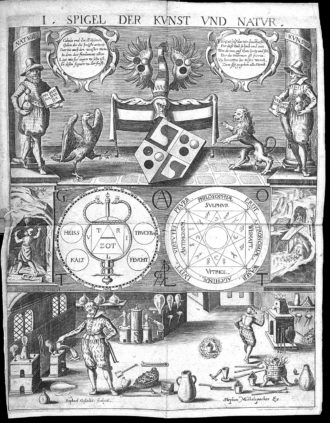
Michelspacher, Cabala, speculum artis et naturae… – »Mirror of Art and Nature«”. The image shows the objective of »Art« (i.e. Cabala and Alchemy) to lead from raw nature (»prima materia«) to its most refined form: »ultima materia«. It introduces the Western esoteric worldview based on the four (five) elements, seven planets and three alchemical philosophical principles, sal, sulphur and mercury as well as their correspondences. The right understanding of these allows the practitioner to transform both himself as well as physical matter in the laboratory. Eastern esoteric traditions typically focus on the inner world – the mind. Greg Kaminsky is one of the more prominent figures in Esotericism who question, whether Eastern or Western systems have the same goals and destinations.
Greg: It’s true. Not all roads lead to Rome. Some roads lead to Cleveland or Hoboken or San Francisco. Well, if we stay within the Buddhist milieu, then you have Mahayana schools that hold different views and generally speaking, the result is more like a consciousness-only view that holds that all is consciousness and there is nothing else. Now some Buddhist tantra lineages go further saying even consciousness is empty, but practitioners will get different results from holding different views and practicing methods whose accomplishment reinforces the view.
When we extend this analysis into Western esotericism, we can notice some interesting things. First, most traditions in the West don’t actually articulate a coherent view. Then we notice that some schools progressively reveal their view as one moves through the stages of the path (and the view may change depending on where one is). And then it becomes obvious when we start to ask where are those who have accomplished the path and realized gnosis? They are very few and far between because, I would argue, by not beginning with a coherent view of reality, it precludes an actual destination or goal. So, you get a range of possibilities, but gnosis tends not to be one of them because gnosis is so far outside the normal function of the human mind that it only asserts itself in those who practice methods designed to allow it to arise. So, I would say that for the most part, what we consider Western esotericism has a different result than enlightenment. We could call the result initiation or knowledge and understanding, but it is not the realization of the nature of mind. I want to be clear here though, Western esotericism does not produce enlightenment, but some Chassidic Kabbalah schools do, and some Orthodox Christian monastic schools do, and some Sufi schools do. I would also argue that people have also gotten results in the Gurdjieff Work as well.
As the Sufis say, “Spiritual practice will not cause enlightenment, but only those who practice become enlightened.” And the crux of this is that only those who practice methods designed to bring about realization will have that possibility. At least this is what I’ve been taught and this has been what I’ve observed.
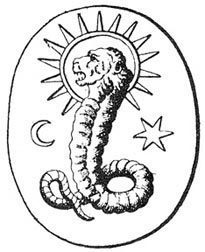
The Gnosis was a movement of various sects and religious ideas evolving around early Christianity. Being mainly syncretisms of Judaic or Christian ideas with classical ancient wisdom and religious ideas these early forms of belief were more likely to make Christianity acceptable for educated Romans or Greeks. A common trait of gnostic schools however was the emphasis of Gnosis – the direct knowledge or awareness through spiritual experience rather than just following teachings and third-handed knowledge. A typical gnostic idea was that the material world was an inferior representation of the world of the good god. Thus, the creator of the physical world was not the true, good god, but a usurper: the demiurge. The dualistic, maybe pessimistic view features several parallels to Eastern ideas, maybe the dichotomy Samsara – Nirvana. Many central ideas of the Western Esoteric Tradition resemble Eastern ideas, not necessarily via a recent import, but over the gnostic heritage, which deeply influenced Christian sects until the late middle ages (such as Catharism). The picture shows a gnostic gem with lion-faced deity – maybe depicting the demiurge. Until today the term gnosis is often used to describe knowledge or realization through spiritual practice.
AH: You use the term “Gnosis” a lot. Many readers will identify this term with the ancient western movement which synthesized or maybe tried to reconcile ancient philosophy and mythological wisdom with christianity; maybe they will translate the term to “insight”, “knowledge” or “awareness”. How would you define it?
Greg: I recognize that some may be tempted to recall historical examples and such, but let’s be clear, gnosis is a type of knowing–all-knowingness. That doesn’t mean that the one who has attained gnosis knows every thing. Instead it means that one is made up of only knowingness. And not knowing any thing in particular. Instead knowing the nature of the mind and reality and that those are not two. It is the recognition, in my understanding, that awareness and appearance are not two. That our perception and the way we habitually decode it leads us to believe some things that turn out not to be the case. For instance, perception does not actually imply a perceiver or a thing perceived; just like knowing doesn’t imply a knower; and what we think of as consciousness doesn’t actually imply beingness either. So, gnosis is a full-body knowingness that the Self is not an independent entity and when it is looked for, it is not found. This is similar to what is discovered when perception is investigated, and consciousness too. There are these processes of awareness occurring, but they don’t automatically mean that we are a subject in a world of objects. So, gnosis could also be described as a non-dual realization. Other words could be used too: self-realization, enlightenment, illumination, liberation, etc. I like to describe it as all is the divine and the recognition that we exist within that and are not separate from it. Gnosis means that the divine can know itself through the human being. And that is our ultimate purpose.
AH: Another important tip, even the first, is something which could be boiled down to »Know thyself!« – at least this is how I summarized this point for me. To some it may sound very basic. Could you share some examples here, of what do you mean by it?
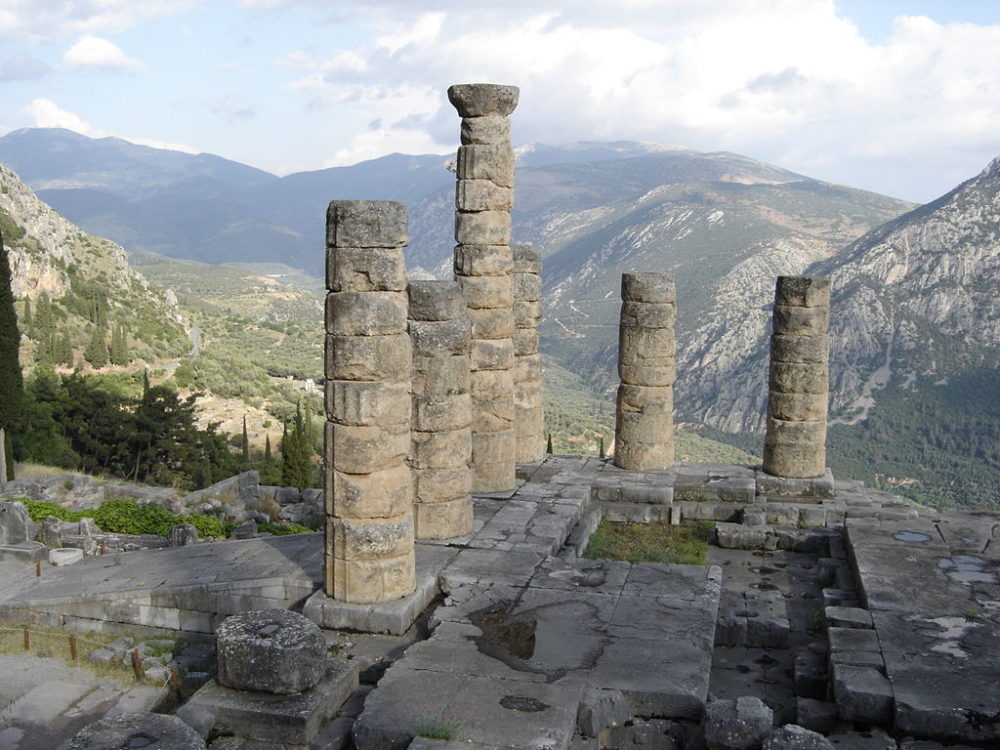
The ruins of the temple for greek-roman god of light Apollo in Delphi, Greece. On its doors were written – among another 146 »delphic maxims« – the often-quoted words »Gnothi seauton« – “Know thyself” which entered latin as »nosce te ipsum« or »temet nosce« (Cicero). Source: CC Wikimedia
Greg: Well, from the ancient Greek philosophers, the aphorism “know thyself” has been the clarion call of mystics, seekers, and spiritual aspirants in the West for thousands of years. Why? Without deep consideration, it might seem that it would be more beneficial to know God or to know the world and with that knowledge, one might better understand themselves and their place and function. But our mind is the faculty by which we know anything, and our mind is partly what we are, so, in a sort of paradoxical manner, one learns through experience that we really must know ourselves fully before it is even possible to comprehend the world or the divine. This is partly because, as all the great philosophers and mystics have expressed, the human being contains all as a sort of reflection because the mind which perceives reflects whatever is held there, like a mirror.
The great Renaissance philosopher Giovanni Pico della Mirandola wrote about this in his Oration, expressing his belief that this aphorism, know thyself, was part of a formula, known far and wide in the ancient world, for the growth and what could be considered the divinization of humans.
The sacred names of Apollo, to anyone who penetrates their meanings and the mysteries they conceal, clearly show that God is a philosopher no less than a seer; but since Ammonius has amply treated this theme, there is no occasion for me to expound it anew. Nevertheless, O Fathers, we cannot fail to recall those three Delphic precepts which are so very necessary for everyone about to enter the most holy and august temple, not of the false, but of the true Apollo who illumines every soul as it enters this world. You will see that they exhort us to nothing else but to embrace with all our powers this tripartite philosophy which we are now discussing. As a matter of fact, that aphorism: meden agan, this is: “nothing in excess,” duly prescribes a measure and rule for all the virtues through the concept of the “mean” of which moral philosophy treats. In like manner, that other aphorism gnothi seauton, that is, “know thyself,” invites and exhorts us to the study of the whole nature of which the nature of man is the connecting link and the “mixed potion;” for he who knows himself knows all things in himself, as Zoroaster first and after him Plato, in the Alcibiades, wrote. Finally, enlightened by this knowledge, through the aid of natural philosophy, being already close to God, employing the theological salutation ei, that is “thou art,” we shall blissfully address the true Apollo on intimate terms.
While Pico correctly addresses the essence of know thyself, P.D. Ouspensky elucidates it for us in a more modern context with an eye towards practicality:
To know oneself—this was the first principle and the first demand of old psychological schools. We still remember these words, but have lost their meaning. We think that to know ourselves, means to know our peculiarities, our desires, our tastes, our capacities and our intentions, when in reality it means to know ourselves as machines, that is, to know the structure of one’s machine, its parts, functions of different parts, the conditions governing their work and so on. We realise in a general way that we cannot know any machine without studying it. We must remember this in relation to ourselves and must study our own machines as machines. The means of study is self-observation. There is no other way and no one can do this work for us. We must do it ourselves. But before this we must learn how to observe. I mean, we must understand the technical side of observation: we must know that it is necessary to observe different functions and distinguish between them, remembering, at the same time, about different states of consciousness, about our sleep, and about the many I’s in us.
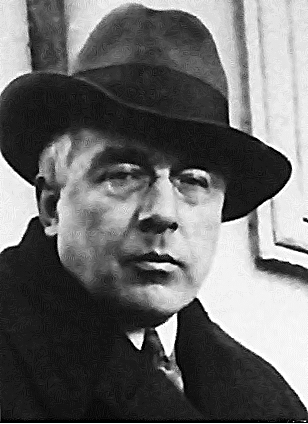
Peter D. Ouspensky (Russian Пётр Демьянович Успенский) was a Russian esotericist and follower of the Armenian esoteric teacher George Gurdjieff, whose work he later teached in England and the USA. He met Gurdjieff in Moscow 1915 and remained his student until 1924, when he chose to continue his journey on his own. He nevertheless kept sticking very close to Gurjieff’s teaching of »the fourth way«, a spiritual system for self-perfection which does not require complete avoidance of the world, such as practiced by the three traditional ways: Yogi, Fakir and Monk.
First, one discovers their nature and how mechanical and similar it is to most everyone. We see how we like our habits and prefer to sleepwalk through our days. That often we prefer our suffering to changing. We see all the ways we could be better and don’t take the steps required to actually become that. We see all the ways we fall short and fail ourselves and others. We feel confused and unsure of the right course of action. We may discover that who we are and who we want to be are so far apart that we don’t know where to begin. And hopefully, we discover that we cannot change into who and what we want without help.
And what is hopefully eventually discovered at the end of the path when one undertakes that task of self-observation? At the very basis is the realization that a human being is simultaneously finite and infinite, that to intimately know ourselves fully is the way to know the divine. Our ultimate purpose as humans is to hold this knowing, to be it, and to live it. This in no way implies we are the divine, rather we exist within its sphere and are an inextricable part of a larger whole. And in knowing and living that, we participate in that wholeness. And participating in that wholeness is the very basis for meaningfulness—ultimate meaning, in fact. And what does living that wholeness of wholeness actually mean? It means caring for others instead of being self-concerned, feeling joyful because of meaningfulness instead of worrying, doubting, and suffering, it means making offerings to and serving the divine instead of serving our own narrow interests, it means being stewards and caring for our lives and our world instead of desiring to be cared for, essentially it is the enactment of wisdom.
So, in assessing this formula of (1) nothing in excess, (2) know thyself, and (3) thou art, it seems superficially simple, yet simple does not equal easy in the same way that information is not equal to transformation. Work is required to change, not just intellectual knowledge, and in this case, Great Work is required. Why is that? Because it is not possible to go from our negative habit patterns into unborn wisdom awareness. As the great sage Thinley Norbu Rinpoche expressed, we must change our negative habit patterns into virtue habit before it is even possible to consider a leap into the open luminosity of pure freedom. We cannot go from fearful grasping at phenomena to pure gnosis without an intermediate process. And that process entails the purification of our perception. Even Christ and the Buddha had to go through an intermediate process. Not to compare ourselves to them, but that alone should clue us in to the fact that authentic, sincere, and difficult work must be accomplished to change our way of being.
AH: You mention work – Indeed, what makes the difference between a magician, yogi, mystic and a thinker is that the first three put in some work. What does your work actually look like?
Greg: That is a good question. In the past two years I have gone from a lazy, but always thinking individual to a person that is still lazy, but works hard and doesn’t value thought as much as I used to. I begin practice the moment I wake up and do offerings and meditation. Then I go to my job, which is currently for my teacher working on a book, so my day is full of study, reading, and writing of material that is focused entirely on the spiritual path. After dinner, I spend another 2 hours or so doing practice and prayers.
Yet, from last autumn into the spring, I was practicing about 8 – 10 hours a day. That was intense and I didn’t think it would be possible, but it is and I miss it now. Life has an entirely different feeling the more time and energy you spend in spiritual practice. Much of my practice is now meditation that is done by visualizing a deity and their palace while repeating mantra. In the moment it is simple and straightforward but the amount of preparatory work required to do it is years. So, I don’t take the practice for granted, in fact, my life revolves around it.
AH: This strong commitment is very typic for Eastern traditions. Obviously it should be the same for any Western School if a student wants to have results, but in my experience few practitioners of western schools maintain such a discipline. Could you explain here a bit also what the preparatory work for you has been to get to that point? And how did you decide or realize that it will take this much?
Greg: There are pre-preliminary practices like the Four Noble Truths, the Four Thoughts that Turn the Mind to Dharma, the Four Immeasurables, and the Six Perfections. These are foundational teachings that must be considered carefully, then alchemically
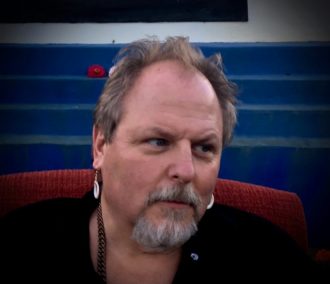
Traktung Khepa is an American spiritual teacher of Tantric Buddhism and teacher of Greg Kaminsky. Greg works also closely with his Traktung Khepa in daily life. More information is available on his website, traktungkhepa.com
contemplated so they become the basis upon which one’s life is built.
Alchemical contemplation via Traktung Khepa: ‘The spiritual propositions, considerations, of the path are not mere intellectualisms, hip philosophy, good ideas but rather they are alchemical transformative power packaged in language. Each consideration can be unpacked through alchemical contemplation in 3 stages.
First clothe it in intellect, consider it, hold it in mind, chew on it and allow its impact to pervade conceptual processes.
Next clothe it in emotive consideration. Hold it in feeling, allow the implications of its meaning to unfold across the felt quality of your life.
Thirdly hold it within the core of beingness as contemplative silence allowing what one is and the proposition to combine.
Do this repeatedly until the proposition becomes a living force within you and then apply it to living’s actions. Allow mechanical habit to be re-examined in light of the new force of contemplation. Bathe intellect, emotions and being in the force and implications of each consideration. Submerge mind again and again within the purificatory power of wisdom.
If these are approached in this way, then there is no choice but to devote yourself to spiritual practice. Then there are preliminary practices known as ngondro (before going). This involves accomplishing 111,000 of each: refuge practice of prostrations, compassion prayers, purification meditation, mandala offerings, and guru yoga. This can take anywhere between a few months and 3 years. It took me almost 2. At the end I was practicing 8-10 hours each day. In my experience, it is not possible to authentically accomplish these preliminary practices as the same person who began them. I realized it would take this because that’s what my teacher told me. And it’s what is traditionally done. So, if you want to progress on this path, it’s a requirement. Higher level teachings and practices are not even accessible to one who hasn’t accomplished that. And what one learns in doing it is that we can do much more than we imagine if we only make it a priority.
AH: Now, after we have seen how much your life revolves around your practice it doesn’t come as a surprise that you also give some advice regarding lifestyle. In short: live a life which serves your spiritual aspirations, instead of running counter. Most practitioners though will know: modern life just takes its toll. You yourself quit a well paying job in a Fortune 50 company to pursue a more fulfilling life and had the courage to start over, giving your own development a higher priority. Is your ideal lifestyle a monastic one or how would you describe it?
Greg: My ideal lifestyle is simple. I take care of commitments and obligations and the remainder is used for spiritual pursuits. It’s what my teacher calls an economics of energy. You see, spiritual practice and the realization of wisdom requires a tremendous amount of energy and attention. If my time is spent on other activities, there won’t be enough. Energy and attention are trapped by non-virtuous habit patterns. By turning non-virtue habits to virtuous ones, we free up the energy and attention that are bound and may use it for our spiritual practice. When we do this consistently, for long enough, we may reach reservoirs of energy and attention that can be used to allow us to realize wisdom.
AH: You moved some years ago from the city or the suburbs to the countryside. You even grow some food on your own, raise chickens. How came this to be, how did it change your life, maybe also your practice? And how do you stay in touch with like minded people?
Greg: My wife and I have always been interested in gardening and eating less processed food. So, when the opportunity arose to have a home with a little land for gardening and animals, we took it. I recognize that food is nourishment and sustenance, but it can also be love. You can love and enjoy the growing and the labor involved, and you love your family and want them to eat well. So growing the food and being able to feed my family is just an act of love. We live in a rural area, so most everyone around us does the same sorts of things and has a similar appreciation of food in that way. It’s like a celebration of life, love, and joy made possible by the sun, rain, the earth, and our efforts. I’d like to think living that way supports my practice and that is the goal–to have my life, both inner and outer, completely congruent with my spiritual path. That way the alchemical vessel of my existentiality has integrity and can hold the blessing force generated through spiritual practice.
I typically stay in touch with like-minded people via the internet as I always have. Occult of Personality podcast and the Chamber of Reflection have served this purpose very well and continue to do so. There is also a small community of practitioners centered around my teacher that I have regular contact with.
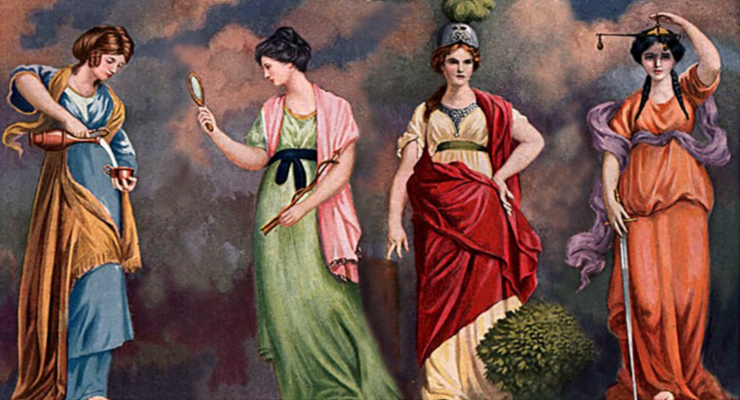
The four cardinal virtues: prudence, temperance, fortitude, justice. First systematically mentioned by Plato they have been adopted by Roman thinkers such as Cicero or Marc Aurel, later Christian thinkers and freemasons. Greg has recently added a show on his member-website ChamberofReflection.com on how to practice virtue.
AH: You mentioned virtuous and non-virtuous habit patterns several times. Could you give some examples for that? How to know which habits are non-virtuous, which are? How to change them? After all we speak about deep changes in life and character. Many professional psychologists have modest success in pulling these off.
Greg: So non-virtuous habits are those that we typically are engaged in and don’t have any positive spiritual value. For example, I like to drink a little bit of beer and it brings me some joy. But I’m under no illusion that drinking beer is going to allow me to realize the nature of mind or to permanently end mine or others suffering (though it may do so temporarily but ultimately creates more suffering than it ameliorated). So for me, the beer drinking is not virtuous, meaning that it’s alright to do it once in a while if I have fulfilled all other commitments, but it cannot be a habit that I engage in with regularity. Virtuous qualities are the qualities of the divine and we enact them in order to be closer to the divine, because to be close to the divine, you must become like the divine. And to change non-virtue habit, one cannot do it by just stopping because that never works. One must replace the non-virtue habit with a virtuous habit in order to make these changes. That is the only way. And it requires real work and a willingness to suffer through it in order to realize a greater degree of freedom. So, to undo a bad habit, one must replace it with a good habit. Simple, but difficult.
AH: Sidenote here: you just published also an episode on virtue and how to practice them. So,I will give here the link for anyone who wants to dive in deeper into that topic: https://chamberofreflection.com/on-virtue-and-the-practice-of-virtue.
To get practical again: – reading the primary source texts of your tradition is a tip I regard as more than hot – there is nothing which can bring you closer to tradition and to initiatory experiences, except for a living teacher. And even this will often demand you to read the old texts directly by yourself. Our last guest, the alchemist Daniel Hornfisher was so kind to share his top 10 of essential reads in the last interview, I would now like to ask you to do the same with your own selection of essential reads. Which texts would you choose if you had to limit yourself to 10?
Greg: This is a difficult question because many books are specific to a certain path. I will try to pick some that people can apply to whatever path they are on.
- The Psychology of Man’s Possible Evolution by P.D. Ouspensky – This book is an excellent introduction to the spiritual path because it describes the mind as it is, not an ideal. The lectures lead you through some of Gurdjieff’s system in a very preliminary way so that one can at least clearly see the need for the spiritual path and that it is not possible to do alone.
- Oration on the Dignity of Man by Pico della Mirandola – This is the classic assertion of the Western esoteric tradition from antiquity into modernity. Although often cast as a sort of declaration of Humanism, in reality it is saying humans are primary only because we can unite with the divine. Really Pico was saying that the Perennial Tradition is what we should be concerned about and not much else.
- Original Innocence by Traktung Yeshe Dorje – This book by my teacher is one of the most clear and inspiring texts on the subject of the nature of mind, reality, and that we all have the capacity to realize gnosis and end our suffering.
- I Am That: Talks With Sri Nisargardatta Maharaj – This is the book that really cracked open my mind and allowed for the possibility that there was more there than I could ever perceive. Just reading this book made me begin to see things in a different way, that Western esotericism didn’t have a lock on wisdom and maybe didn’t even know what it was…
- Jesus Christ, Sun of God by David Fideler – A great primer on the basic theories and background of Western esotericism. I found more knowledge in this book than I expected. A real gem.
- Man’s Search for Meaning by Viktor Frankl – A classic text written by a man who knew his subject with an intimacy that we all hope we never have to confront. Reading this book provides much needed perspective and insight into the human condition and the way our minds function.
- Meetings With Remarkable Men by G. Gurdjieff – I loved this book because it gave me some sense of Gurdjieff the man. His tales of travel, adventure, searching for secret masters are extraordinary and because they’re based on his experiences, we can get some sense of the purpose for his quest, how the people he knew shaped his life and ideas, and the rare quality of his mind.
- Meditations on the Tarot: A Journey into Christian Hermeticism – This is a classic text that not only describes Tarot symbolism in exquisite detail, but also the doctrines of Hermeticism and Western esotericism generally in such a way that if you are interested in the subject, it is a must read.

George Gurdjieff, born somewhen between 1866 and 1877, died 1949 was an Armenian spritual teacher and founder of the so called »fourth-way«. A system of self-development which unlike the “three traditional” ways (monk, fakir, yogi) could be practiced in the real world, without the need for isolation. He brought his teachings over Russia – where he met Ouspensky – to Europe, France, while his student Ouspensky would bring his teaching to the anglo-saxon world. Central for Gurdjieff’s teaching is that most people live in a sleep-like state of mind, but higher forms of consciousness can be developed with his system of awareness and self-observation.
- The Kabbalistic Mirror of Genesis by David Chaim Smith – I love this exegesis of Genesis 1-3 so much because it allows the reader to see the text, and our ideas about creation, in a completely new way. Smith’s non-emanationist Kabbalah is the precise antidote for the tendency in ceremonial magick of the will to power and the reification of the self. And the way that it opens the door to appreciate the Kabbalah in new ways is quite astounding (non-theistic, non-emanationist, and even non-creationist!).
- The Tower of Alchemy by David Goddard – I practiced the meditations from this book every day for more than a year and the results I had were amazing. Goddard’s comparative analysis of Western alchemy with Vajrayana symbolism is quite nice and I found the meditative exercises really stretched my capabilities and allowed me to grow more than I expected.
AH: And last, but not least, our traditional Crowley-question: What is your take on Aleister Crowley?
Greg: So, this is my opinion and I’m not passing judgement in a declaration here, just sharing my own thoughts. People should think and do what they want, and they always do. In the past, I had a lot of respect for Crowley and his work. But as I’ve continued learning, studying, practicing, and talking to my teacher, my opinion of Crowley is not the same as it used to be. I believe that Crowley did not actually have any stable realization of the nature of mind, though he seemed to have glimpses. His writings display some remarkable insights and he was certainly the most prolific occultist I’m aware of by far. But when I look at the history, Crowley was more experimenting and indulging in experiences rather than cultivating wisdom. I also find the way he developed his public image and habitual behaviors to be indulgent. I feel that Crowley presented himself later in life as a master, but I don’t see the evidence that he had attained wisdom that would make that assertion valid. So, in my opinion, creating a magical system and church seems audacious by one who hasn’t yet accomplished the path, but audaciousness was his stock and trade. I also understand that he was not under specific obligation to embody wisdom and I don’t disparage him or his work because the fact of the matter is that it very well may be beneficial to some of his followers and students. And I will never speak ill of a teacher because someone may actually benefit from their work. And if that is the case, then who am I to pass judgement or stand in the way?


